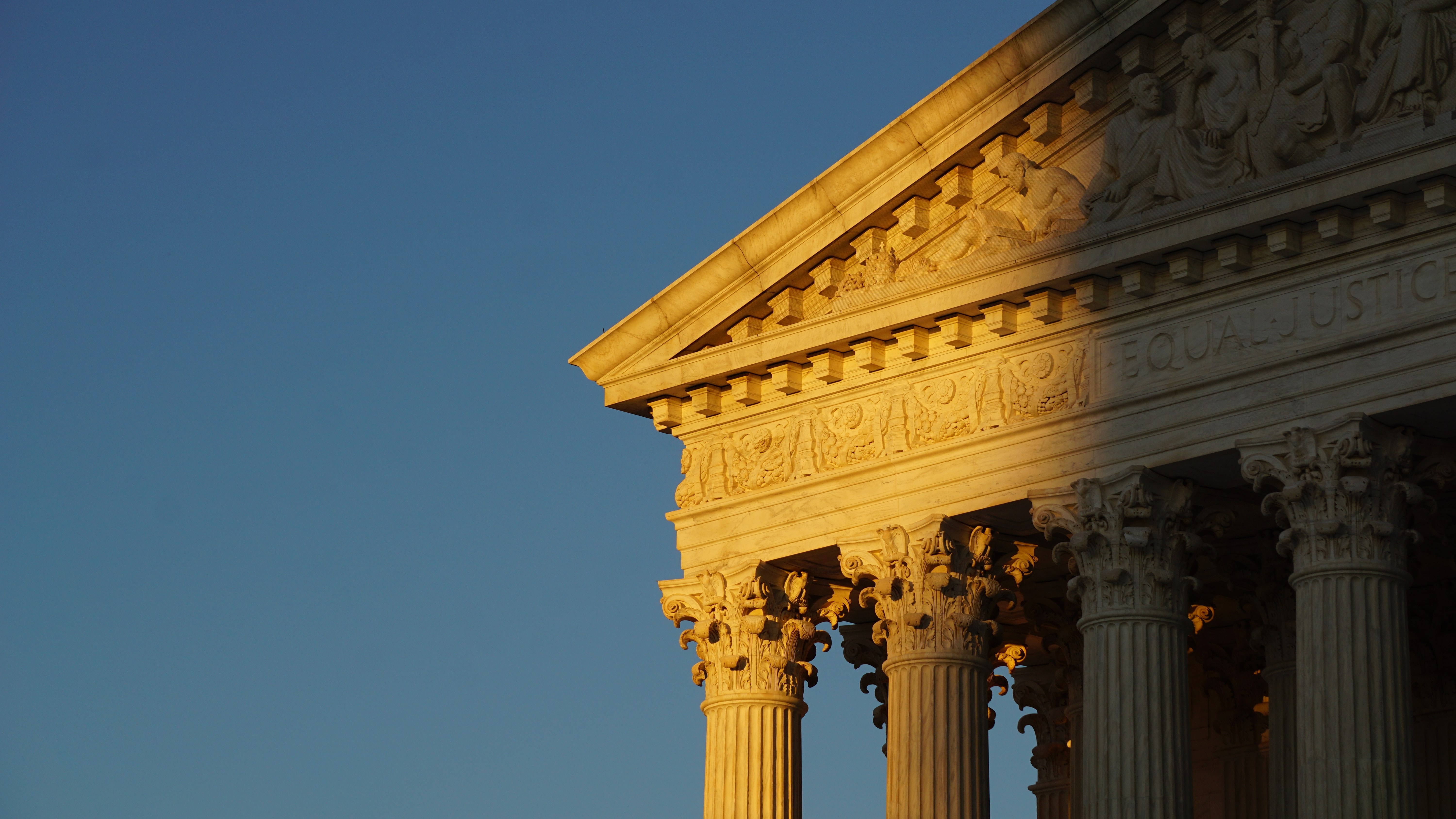Roe v. Wade, Binary Thinking, and Loving the Gridlock



Up until 8 months ago, I would have described myself as “Pro-Life”. I’m religious, I believe in the sanctity of life and I am generally conservative in my political leanings. I had spent some time thinking about it... but always from a perspective of my own morality. I am pretty confident about what kinds of decisions I would make regarding the issue, and how I would counsel my wife, daughters and close friends if I was in a position to do so.
Consequently, when someone on Facebook cornered me about whether I thought Roe v. Wade should be overturned, my immediate answer was yes. It would have to be, right? I mean... that’s the side I’m on, isn’t it? Pro-Life people think it should be overturned, and Pro-Choice people think it should not be. Everyone knows that.
But as I reflected for a moment, I realized that beyond some vague idea of “a supreme court decision that legalized abortion”, I had absolutely no idea what Roe v. Wade was, or what it contained. I got online and started reading Justice Blackmun’s majority opinion. To my surprise, as I read further and further, the only adjective that I could conjure up was “reasonable”. I’d never really taken the time to read a Supreme Court Opinion, and I was pretty shocked at how much research, and supporting ideas were a part of it. (I guess that's why they get to wear the really cool robes.)
I was surprised to see the following:
“appellant and some amici argue that the woman's right is absolute and that she is entitled to terminate her pregnancy at whatever time, in whatever way, and for whatever reason she alone chooses. With this we do not agree.”
I was impressed with the effort to find precedent going back hundreds of years, even reaching back to ancient Rome:
“The Ephesian, Soranos, often described as the greatest of the ancient gynecologists, appears to have been generally opposed to Rome's prevailing free-abortion practices. He found it necessary to think first of the life of the mother, and he resorted to abortion when, upon this standard, he felt the procedure advisable.”
I was fascinated by the care taken to address common-law history:
“It is undisputed that at common law, abortion performed before 'quickening'-the first recognizable movement of the fetus in utero, appearing usually from the 16th to the 18th week of pregnancy-was not an indictable offense. The absence of a common-law crime for pre-quickening abortion appears to have developed from a confluence of earlier philosophical, theological, and civil and canon law concepts of when life begins. These disciplines variously approached the question in terms of the point at which the embryo or fetus became 'formed' or recognizably human, or in terms of when a 'person' came into being, that is, infused with a 'soul' or 'animated.' A loose consensus evolved in early English law that these events occurred at some point between conception and live birth.”
Finally, Justice Blackmun began his summary in this way:
“A state criminal abortion statute of the current Texas type, that excepts from criminality only a life-saving procedure on behalf of the mother, without regard to pregnancy stage and without recognition of the other interests involved, is violative of the Due Process Clause of the Fourteenth Amendment. For the stage prior to approximately the end of the first trimester, the abortion decision and its effectuation must be left to the medical judgment of the pregnant woman's attending physician. For the stage subsequent to approximately the end of the first trimester, the State, in promoting its interest in the health of the mother, may, if it chooses, regulate the abortion procedure in ways that are reasonably related to maternal health. For the stage subsequent to viability, the State in promoting its interest in the potentiality of human life may, if it chooses, regulate, and even proscribe, abortion except where it is necessary, in appropriate medical judgment, for the preservation of the life or health of the mother.”
This in no way “settles the question” of whether abortion is legal in the United States. The Supreme court recognized that it’s decision in this case would result in many more future cases being brought before them on related premises. However, it is not their role to "find a solution to the problem". Their role is only to rule on the matter before them.
As for me, if I’m not entirely convinced that Roe v. Wade should be overturned, does that make me “Pro-Choice”? I’m not sure how it could, considering that my personal feelings about abortion remained completely unchanged after studying Blackmun’s opinion. What all this studying did do, was to cause me to seriously reconsider whether I should lobby for my personal moral opinions to be enshrined in law.
Even if you believe that the “rightness” of a ban on abortion is self-evident, I invite you to consider the following. The banning of abortion at any stage of pregnancy would seem to be based upon the idea that individual human life begins at conception, and therefore, an overt act that ends that life is murder on the part of the one who acted. If that is true, then would it not also be true that a pregnant woman who ignored printed warnings and rode a roller coaster resulting in a miscarriage, would be guilty of manslaughter? If you go so far as to say that any fertilized egg is a human life, then even most common birth control methods out to be considered abortifacient.
Once I start to contemplate government meddling in issues such as the degree of care a pregnant mother gives her unborn child, or how a couple chooses to employ birth control, then I feel like privacy is starting to be unreasonably infringed upon. In fact, Roe v. Wade, had a profound effect upon how courts interpret implied privacy rights. But that is another can of worms entirely. My opinion of whether Roe v. Wade should be overturned is now nebulous at best. It looks like I have a lot more homework and introspection ahead of me. You might ask, “If we have too many people in this country who do not have a clear opinion on the subject, then how will we ever solve the problem?”
Perhaps a good response would be… “What Problem?”
Is there really anything wrong with passionate people on both sides of any given subject, carefully expressing their opinions, and then letting the weight of arguments and the process of time refine their understanding? Why does there have to be an overarching “right and wrong” that somehow encompasses all the nuance of a complex subject like abortion?
We have become a society of people who engage in this type of “Binary Thinking” more and more often. When you are talking about the competing rights of a life in utero, and the life, liberty and privacy of the individual who's uterus it is, it ought to be obvious that there is no easy or simple answer. Why has that idea become so uncomfortable and distasteful to us? Why are we no longer willing to engage in the hard work of listening, studying, pondering and reasoning our way into better and better ways of seeing the world around us?
This laborious method of "figuring things out" is not always efficient. It does not yield quick results, and rarely results in revolutionary change. But it just might be the best strategy available to us. I love what Justice Antonin Scalia said in his opening remarks to the Senate Judiciary Committee on October 5, 2011.
Speaking of American Exceptionalism: The Europeans look at this system and they say, well, it passes one House … it doesn't pass the other House; sometimes the other House is in the control of a different party; it passes both, and then this President, who has a veto power, vetoes it … they say, "Ah, it is gridlock" And I hear Americans saying this nowadays, and there's a lot of it going around. They talk about a "dysfunctional government" because there's disagreement. And the Framers would have said, "Yes, that's exactly the way we set it up. We wanted this to be power contradicting power -- because the main ill that beset … as Hamilton said … is an excess of legislation … This is 1787 -- he didn't know what an excess of legislation was. … Americans can appreciate that and learn to love the separation of powers, which means learning to love the gridlock, which the Framers believed would be the main protection of minorities. … If a bill is about to pass that really comes down hard on some minority [and] they think it's terribly unfair, it doesn't take much to throw a monkey wrench into this complex system. So, Americans should appreciate that and they should learn to love the gridlock. It's there for a reason -- so that the legislation that gets out will be good legislation.
The issue of abortion, like so many other issues that tend to divide us, and to inflame deep passions within us, cannot be settled with a single stroke of a pen, or one trip to the ballot box. It will take hard work, and careful conversations. And each of us are obligated to do this work, by virtue of the inheritance we have received from the founders of this nation. Embrace it. Love it.


